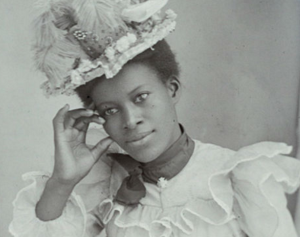Many people care about trans folks, but they don’t know the best ways to support us. And oftentimes, in that confusion, typical rules of conversation fly out the window.
What’s considered appropriate to ask a trans person is often something folks would never dream of asking a cis person.
Trans people get a lot of questions and comments. Unfortunately, many of them are inappropriate.
Changing the words you use and actions you take, even on a small level, makes a huge difference.
So let’s check out how to shift everyday conversational culture with trans people into the zone of politeness and decent humanity.
To Ask Or Not to Ask – That Is the Question
1. Don’t Ask Us Questions Related to Our Lives Pre-Transition
Asking us about our lives before we grew into ourselves is pretty insensitive.
It can trigger dysphoria, and it’s basically saying, “I want to hear all about that time you were super unhappy and not yourself.”
Don’t go there.
Plenty of people have written blogs, articles, and transition memoirs, so if you’re curious about this part of the trans experience, please read those.
Don’t badger your hapless trans acquaintance (or friend) for the gory details of their sometimes-traumatic past. It’s just impolite.
If we bring it up, that’s another thing.
It doesn’t mean it’s open season on your questions. It does mean that we’re trusting you enough to talk about this.
Listen respectfully, and don’t press questions. Be affirming and honored that this person is sharing their experience with you.
2. Don’t Ask About Medical Transition
As with #1, if someone brings this up, that’s a different story. Follow the steps outlined above.
But if someone hasn’t brought it up, please don’t bring it up yourself.
It’s like asking out of the blue, “So, how are your hormone levels lately?” or “How do you feel about the shape of your labia?”
Except worse.
Because with trans people, our bodies are non-consensually objectified and fetishized constantly.
Cis people seem to have an endless fascination with the physical aspects of our transition, as part of a creepy sexualized eye.
But it’s just as creepy to pontificate on trans people’s genitalia and secondary sex characteristics as cis people’s.
So don’t do it.
Even if you have talked about similar subjects before, or you are very close, recognize that for some (not all!) trans people, this has been brought up so many times before that it’s often better to let them take the lead, if they decide to talk about it with you.
3. Do Ask (Everyone!) ‘What Pronouns Do You Use?’
You really can’t know without asking.
You wouldn’t just assume someone’s name. And their a/gender identity is probably irrelevant unless they bring it up.
But just like with names, you will need to know their pronouns in order to be able to refer to them. And assuming just doesn’t cut it.
So ask what pronouns everyone uses – because anyone could use any/all pronouns, or none at all – and introduce yourself with your name and pronouns.
Because that’s solidarity – and also needed information.
When you do that, you’re saying, “I know that you need this information in order to interact with me, and I know that there is no one way to look trans. So even though I rarely am misgendered, I want to ensure that I create a culture in which nobody is.”
4. Do Ask How to Best Support Us in Any Given Space
If I had a dollar for every cis person, queer or straight, who said they supported me, but then did nothing to make the spaces we shared safer… Well, let’s say I could retire at a very young age.
Supporting us can take different forms for different people.
We all are unique humans with a variety of needs. So it’s better to ask, rather than assume, what someone needs (or even if they do need support from you).
Another benefit to asking is that you can make sure that you will be able to do something that is helpful. Sometimes, what a cis friend or acquaintance thinks will be helpful will actually make the situation worse.
Like with everything else in life, it’s best to get the consent of the person you’re trying to work with, and it’s always best to take direction from the person experiencing oppression in that situation.
Of course, it’s also important to only offer or commit what you are able to do.
If you’re able, push yourself out of your comfort zone to do a little more – because many trans people live outside our comfort zones perpetually, and it would be great to have some company out here.
5. Do Ask Whether Shared Information Should Remain Confidential
Trans folks are in all sorts of different places when it comes to sharing trans-related information with others.
Some are non-disclosed and/or don’t identify as trans. Some are just starting to come into themselves and haven’t told hardly anyone. Some have told some things to some people and not to others. And some of us are out to the world!
The same is true not only with disclosing a trans identity, but also generally with the ups and downs of navigating a transphobic world.
If someone has confided in you about a struggle they’re having, or about dysphoria, or about their relationship with their family – whatever, really – you should make sure that you know what’s confidential and what they want others to know.
It’s the way to build trust and also avoid ruining lives. Because it’s very dangerous to be trans in the world.
If a trans person has shared some of those struggles with you, be safe and make sure that you know what is a secret you need to keep, and what that person openly shares.
The Do’s and Don’ts of Commenting
1. I Support You, But Your Pronouns Are Too Hard for Me to Use
TRANSLATION: “I support you, but I don’t want to talk about you.”
As a friend of mine says, if you care enough about someone to talk about them, then you care enough to use their pronouns.
This isn’t negotiable.
Talking about someone while misgendering them is not only harassment, it erases who they are, among many other awful things.
I’m assuming you want to talk about us, and not a non-existent figment of your imagination, or about a past that never truly represented our selves.
Make sure that you’re actually talking about the people in front of you, and not erasing our existence.
It can take extra time and effort to make the switch, but you need to put in that extra time and effort. If you aren’t, you are saying that you don’t respect that person enough to use basic words for them.
When people say it’s hard, they’re often saying that they don’t want to put in the effort. People learn new words and speech patterns all the time, but they switch names more easily than they change pronouns for people. Even dogs and cats get more apologetic and consistent pronoun treatment than many trans people!
This is because pronoun use often contains deeply ingrained prejudices. Here are some resources for being intentional with pronoun use.
2. I Support You, But Can’t You Dress More Normally?
TRANSLATION: “I support you, but I don’t want to see you.”
“Normally” usually is a cover for “cisnormatively.”
Cisnormativity is the idea that people’s bodies and gender expressions should conform to cisgender stereotypes.
Of course, we aren’t cis. We’re trans. And, as with cis people (and intersex people who don’t identify as cis or trans), our bodies and gender expressions come in all sorts of forms.
Sometimes we are read as cisgender. Sometimes we are read as trans, whether we want this or not.
Depending on who we are, we can have much more or less control over how we’re viewed by others.
Some of us have the opportunity for our bodies and gender expressions to be read correctly by a cisgender audience.
Others do not have this opportunity, maybe because of intersecting oppressions –transmisogyny, non-binary erasure disability, race, and class often make this harder or more dangerous.
Some binary trans people are non-consensually read as non-binary, while some non-binary people are never read as their true genders.
Whatever the reason, and however much or little control we have over our physical bodies, often our a/gender expressions – how we hold ourselves, talk, dress – are our lives and livelihoods.
Sometimes we express our a/genders in order to try to blend in as much as possible, either because we want to, it’s also who we are, because it’s safer, or all of the above.
Sometimes when we express our a/genders completely in line with our internal sense of a/gender, it can be read in a variety of ways, from blending in to standing out.
For me, it often means that my sense of style stands out.
Please understand that when I dress this way, it is out of a deep need for me to be my true self. It is often the only outfit I could choose that day. I’m showing you my true self – and, um, my true self happens to be pretty fashionable!
When you ask me to change what I am wearing, you’re asking not to see me anymore. All of us have the right to be in the world and be seen and respected as who we are.
If you support us, you will allow for us to express our genders however we need to, and for our bodies to take whatever forms they do. If you support us, you will want to see us for who we are.
3. I Support You, But What You’re Saying About Bathrooms Goes Too Far
TRANSLATION: “I support you, but I don’t want you to perform basic bodily functions.”
As Oliver Renee Schminkey says in The Naked I: “Dear cisgender people, when I walk into bathrooms designed for you, does it make you uncomfortable? If it does, then we’re on the same f*cking page!”
Bathrooms are not only for cis people. Cis people often seem to be under the mistaken assumption that part of the conditions of trans-ness is that we never actually need to use the bathroom.
You are sadly mistaken. We don’t have this superpower.
Most of us, like most of you, have bladders and intestines – and those of us that don’t usually have other ways of handling our waste.
That was more than you wanted to know, right? Right. Because you don’t actually want to think about how other people pee or poop very often. It’s a social norm we don’t go into that much.
So stop policing ours.
Gendered and/or transphobic bathroom segregation is whack. It literally causes diseases from fear of bathroom harassment. It deprives young people of educations when they have to choose between going to school and being able to pee. It kills people.
Yes, bathrooms designed for only cis people to use kills people.
There is, however, a solution to this problem that doesn’t involve you squirming uncomfortably, thinking about how random people will get a chance to pee or poop.
Yes: It involves de-gendering all bathrooms.
Because why was that happening anyway? If bathrooms are gendered, of course binary trans people (anyone, for that matter) should be able to use them. But us non-binary people exist, and we also deserve bathrooms that correspond with who we are.
So, actually, all that bathroom stuff isn’t going too far.
Typically, being allowed a space to perform basic bodily functions is a pretty essential part of being alive.
If the spaces you’re in don’t have gender-neutral bathrooms, or if binary bathrooms aren’t explicitly safe for all people, that’s a pretty basic place to start in your advocacy.
De-gendering all bathrooms might sound radical. But it’s as radical as saying that everyone should be allowed a space to pee/poop/do whatever they need to do to get rid of waste.
Agree that everyone should be allowed to pee? Then you should agree with this.
***
Cis friends, relations, and strangers: This stuff is the beginning. This stuff is pre-101. This stuff is the beginning and it’s pre-101, and in my life, in the “progressive” bubble where I live, I can’t go through a day without experiencing at least one of these oppressive questions or comments.
When a friend of mine was asked to weigh in on how their university could better accommodate trans people, and they essentially gave this list, the university said, “Yeah, but do you have anything more basic we can do?”
Talking about people is basic. People being able to present as themselves is basic. People being able to pee is basic.
This is the basic stuff. Let’s work on making a world where trans people can do these things, shall we?
We need your help to make it happen.
[do_widget id=”text-101″]
Adrian Ballou is a Contributing Writer for Everyday Feminism. A genderqueer writer, artist, activist, and educator who does youth development work both inside and outside the classroom, they particularly enjoy writing and facilitating social justice education and youth organizing curriculum. To learn more about their consulting and speaking work, check them out here. In their free time, they cook lots of food, sing songs, make art, and practice their Spanish, Hindi, and Urdu. Read their articles here.
Search our 3000+ articles!
Read our articles about:
Our online racial justice training
Used by hundreds of universities, non-profits, and businesses.
Click to learn more





















